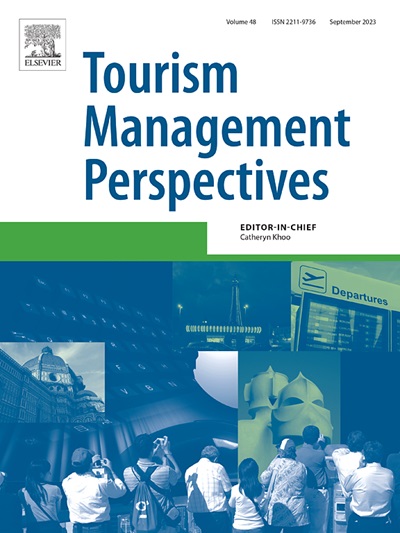Social capital, resource bricolage and micro-innovation strategies for rural tourism small enterprises: A longitudinal case study
IF 6.9
2区 管理学
Q1 HOSPITALITY, LEISURE, SPORT & TOURISM
引用次数: 0
Abstract
Micro-innovation strategies are crucial for rural tourism small enterprises, particularly in emerging economies, but their complexity and effectiveness remain underexplored in the tourism literature. This study integrates the resource bricolage and social capital frameworks to explore how tourism small enterprises implement micro-innovation strategies by conducting a longitudinal case study of Mengdong Company in rural China. The findings reveal a three-stage evolutionary process: first, micro-innovation is differentiated through bridging capital, network bricolage, and spatial bricolage to access external resources; second, micro-innovation is integrated by bonding capital, organizational bricolage, and market bricolage to enhance internal capabilities; finally, collaborative micro-innovation using linking capital, social bricolage, and market bricolage to promote multi stakeholder collaboration. There are two key drivers of this evolution: the temporal sequencing of diverse forms of social capital that enable strategic adaptation and the combinatorial logic of bricolage that transforms resource constraints into opportunities. Theoretically, the framework reconceptualizes micro-innovation as a stakeholder-driven dynamic process, emphasizing the roles of social capital and resource bricolage. Practically, this study provides valuable insights and managerial recommendations for fostering the innovative development of these enterprises in rural areas.
社会资本、资源拼贴与乡村旅游小企业微创新策略:纵向个案研究
微创新战略对乡村旅游小企业至关重要,尤其是新兴经济体的乡村旅游小企业,但其复杂性和有效性在旅游文献中仍未得到充分探讨。本研究结合资源拼贴和社会资本框架,通过对中国农村蒙东公司的纵向案例研究,探讨旅游小企业如何实施微创新战略。研究结果表明,微创新的演化过程分为三个阶段:第一阶段,微创新通过桥接资本、网络拼贴和空间拼贴来获取外部资源;二是通过债券资本、组织拼贴和市场拼贴相结合,提升内部能力;最后,利用连接资本、社会拼凑和市场拼凑来促进多方利益相关者协作的协同微创新。这一演变有两个关键驱动因素:使战略适应成为可能的各种形式的社会资本的时间顺序,以及将资源约束转化为机会的拼凑的组合逻辑。从理论上讲,该框架将微创新重新定义为利益相关者驱动的动态过程,强调社会资本和资源拼凑的作用。在实践上,本研究为促进农村中小企业的创新发展提供了有价值的见解和管理建议。
本文章由计算机程序翻译,如有差异,请以英文原文为准。
求助全文
约1分钟内获得全文
求助全文
来源期刊

Tourism Management Perspectives
Multiple-
CiteScore
15.60
自引率
3.40%
发文量
99
审稿时长
59 days
期刊介绍:
Tourism Management Perspectives is an interdisciplinary journal that focuses on the planning and management of travel and tourism. It covers topics such as tourist experiences, their consequences for communities, economies, and environments, the creation of image, the shaping of tourist experiences and perceptions, and the management of tourist organizations and destinations. The journal's editorial board consists of experienced international professionals and it shares the board with Tourism Management. The journal covers socio-cultural, technological, planning, and policy aspects of international, national, and regional tourism, as well as specific management studies. It encourages papers that introduce new research methods and critique existing ones in the context of tourism research. The journal publishes empirical research articles and high-quality review articles on important topics and emerging themes that enhance the theoretical and conceptual understanding of key areas within travel and tourism management.
 求助内容:
求助内容: 应助结果提醒方式:
应助结果提醒方式:


